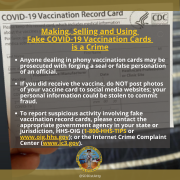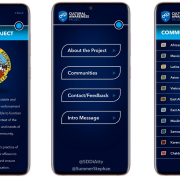$2 Million Settlement with Match.com and Other Dating Sites
San Diego County District Attorney Summer Stephan announced today that Match Group, Inc., the owner of numerous popular online dating sites including Match.com, PlentyofFish, OkCupid and Tinder, agreed to pay $2 million in civil penalties and costs, in addition to victim restitution, as part of the settlement of a consumer protection lawsuit. The lawsuit was filed in Santa Cruz county in November 2020 by the California Auto Renewal Task Force (CART), which includes the District Attorney’s Offices in San Diego, Los Angeles, Santa Barbara, Santa Clara, and Santa Cruz counties and the Santa Monica City Attorney’s Office, and alleged that Match’s online dating service subscriptions violated provisions of California’s automatic-renewal and dating service contract laws.
Among other things, the task force alleged that Match’s sign-up processes failed to clearly and conspicuosly inform consumers that they were enrolling in an automatically-renewing service and failed to secure their affirmative consent as required by law. Additionally, the prosecution team alleged that Match’s post-payment acknowledgments failed to inform consumers how to cancel and that the cancelation process was lengthy and tedious – also violations of California’s automatic renewal laws. Match has denied these allegations.
“San Diego and its CART colleagues continue to hold companies accountable when they violate California’s automatic renewal laws, and online dating service companies are no exception,” DA Stephan said. “These laws exist so that consumers are not surprised by unanticipated recurring charges and, when seeking to cancel an automatically-renewing subscription, can do so simply and efficiently. This is one of several recent examples of our consumer protection team working with CART to achieve compliance with these important laws.”
Santa Cruz Superior Court Judge Timothy Volkmann entered a final court judgment on the parties’ stipulated settlement on July 7, 2021.
The judgment requires Match to have full transparency with consumers about their automatically renewing subscriptions.
The company must:
• Clearly and conspicuously disclose its automatic-renewal terms
• Obtain the consumers’ affirmative consent to the terms through a separate checkbox or
similar mechanism before charging for an automatic renewal or continuous service
• Email consumers a confirmation of the transaction after they pay which clearly includes the automatic-renewal terms and information on how to cancel
• Allow consumers to easily cancel their subscriptions, including online
Match has already taken steps to ensure its web disclosures and processes comply with California’s Automatic Renewal and Dating Service Contract laws.
Deputy District Attorneys Colleen E. Huschke and Stephen M. Spinella with the Consumer Protection Division handled this case for the San Diego County District Attorney’s Office.








